- Home
- Anne Spackman
Across the Stars: Book Three of Seeds of a Fallen Empire
Across the Stars: Book Three of Seeds of a Fallen Empire Read online
Across the Stars
By
Anne Spackman
Copyright © 2012 by Anne Spackman
All Rights Reserved.
Cover Art by Boris Rasin
Chapter One
The aliens were here already.
And a battle for the Earth of 3084 had been waging for fifteen years.
The aliens were Orians, from a planet far away in the Rigell system, near the belt of Orion known as the Osiris Stars. A gray-skinned humanoid race, the Orians had begun an assault of the Earth, trying to recapture an ancient starship called the Selesta. The Orians’ purpose in coming to the Sol system remained unknown to the Earth.
The Earth space fleet had recently attacked the Orians out at Pluto where their great spaceship Enlil was. For a moment, the Earth assault squadrons thought they had destroyed the alien vessel. But then, as the blaze surrounding the Orian’s ship ceased in the vacuum of space, the alien ship remained in tact, with a great gaping hole in the side. Somehow, the Orians had survived…
* * * * *
“Heavy losses it looks like,” the Earth pilot Erik Ross thought, looking at the image in his monitor. He was, for the moment, overjoyed to still be alive. Unlucky pilots who had been killed now decorated the space outside the ship, along with the debris of legions of destroyed fighter planes.
Glad to be home, he thought. But damn it, why couldn’t the mission have been a success? Why couldn’t they have blown the alien mothership to smithereens?
He was a part of the infiltration team that had so recently invaded the alien mother ship. Now they were docked safely in the fighter bay of a small space vessel called the Stargazer, returning to the warmth and safety of the flagship Stargazer from the deathly cold around the planetoid Pluto and its twin planetoid, Charon.
“Hmmm, John Fraser, too,” Erik Ross’ monitor began to flash the losses from his squadron over and over, a bright light that segmented reality into disjointed split-second images.
“I can’t take any more,” he said, shaking his head again. He stopped looking at the names and numbers of the fallen, vaulted from the cockpit, yanked off his helmet, and let it drop to his side. He held on to it with tired, swollen fingers, though his arm felt like lead. As he stood in front of his fighter, the cold air of the docking bay seeped through the damp brown hair at the nape of his neck, chilling him.
“Shit, man, never was so glad to see you,” said his friend Hans.
“You either,” Erik threw back. They were overjoyed to be back.
Slowly, the rest of the Earth’s infiltration team who had escaped from inside what they called the Charon aliens’ spaceship began to disembark from their fighters. The fourteen survivors now gathered quietly in the docking bay, long after the other pilots had returned to their quarters. They could not join together in quite the same jubilant celebration, like the other squadrons returning to the flagship, the Stargazer.
No one knew yet the full extent of the battle’s casualties, how many more comrades had been lost in the territory around the alien mothership.
They stood there together for just a few moments, waiting for confirmation of their return, while each was lost in his own separate thoughts.
Jason, my friend, Erik Ross thought with an involuntary shudder, remembering lieutenant Donnelly’s crash inside the alien ship. His mind replayed the images of that fight, but at last it lingered on an image of Jason’s plummeting fighter falling ever closer to the ground. What couldn’t he get that image out of his mind? Had Jason been alive then, or no more than–
Erik’s stomach suddenly lurched, but with an effort, he managed to shake off the combination of nausea and pangs of anxiety washing over him. How many others had given their lives today defending the Stargazer? he wondered, his thoughts turning bitter.
And for what? To fail??!! For that was what had happened. No matter what valuable information the infiltration team had obtained, they hadn’t managed to blow up the alien ship and send the aliens to eternity. The black monolith haunting Charon, Plutos’ twin planetoid, was still out there, and to Erik, this was the same thing as failure. Unreasonable as it was to have ever expected an Earth victory, he didn’t care.
It kind of makes you feel ashamed to be one of the survivors. But really he felt ashamed to have returned without accomplishing what they had set out to the ends of the solar system to do. “Well, at least we learned some things,” Erik said out loud, still standing by his fighter as he and Hans talked.
And one thing that the infiltration unit had learned was that the creatures threatening the human race were almost human themselves.
“Can you believe all we saw?” Hans said, nodding. “The aliens aren’t too much like us, but they’re humanoid!” Hans said with a shudder. “I never expected that.”
“I know what you mean, neither did I! I wonder what the Top Brass will do with this information.”
“Me, too.”
Erik recalled the brief images of the creatures below as he had flown through the enemy ship; he knew he was not mistaken. There was no question about what the team had seen. Granted, they were grey and taller and such, but they were humanoids!
“So the aliens from both ships are humanoid. Think they’re the same—I mean, they look it, don’t they!” said Hans.
Another, abandoned alien ship had crashed to the Earth nearly twenty years before, and it had been buried by an avalanche. However, it had remained hidden until recently. Six months after it came to the Earth, the Charon aliens had arrived in the solar system, possibly to claim it, or the Earth itself. No one really knew what the Charon aliens wanted, but they had begun a destructive assault against the Earth.
It was a good question—were the aliens one and the same, or were they different? Erik didn’t know. No one knew—yet.
For the former occupants of the grounded alien vessel on Earth had seemingly vanished without a trace. Many people thought that if there had been any aliens inside it that they had been killed by the crash to Earth. But, recently, it had opened and the Earth had explored it, finding evidence of humanoid aliens that had once lived inside.
“They look… so human,” Erik thought again in wonder. In all of his imagination, Erik had never once even thought that the Charon aliens would seem so close in form to his own.
“Yeah, you know, you think any species as violent and vicious as the Charon aliens wouldn’t be humanoid—but then again,” said Hans. “The human race isn’t exactly innocent of war in its past.”
“No…” Erik said. “But did they come here to take our world? Wonder if we’ll ever know.”
“Who knows?” agreed Hans.
Meanwhile, the other members of the infiltration team were also talking.
“They better not want the Earth to live on,” Erik thought. In agitation, he balled a fist against the smooth surface of his Sky Hawk fighter. He drew back suddenly, temporarily drawing eyes with the abrupt intrusion of the unwanted sound. The fighter, warm only moments ago, was already encrusted with ice in the frigid cold of the docking bay; it was going to take a while for the heat to rise to normal levels. Erik pulled off his flight gloves as if to check his raw knuckles beneath, rupturing the air-tight seal of his uniform, and then stared at the lines inside his palm.
They were the same as they had always been, not marked in any way that might betray what he had done, not stained with alien—with humanoid blood. However, he did not regret killing the aliens so much as how it had affected him to do it. The aliens deserved what they got, Erik thought, but at the same time, he regretted how their deaths made him necessarily a killer.
“W
e should be going soon.” Said Hans. “I don’t know why Captain Kansier hasn’t contacted us yet.”
“Yeah, someone should have by now.” Erik said, looking up and noticing suddenly that Erin Mathieson-Blair had survived!
The girl he loved. Nothing seemed real anymore, with the line between truth and impossibility hopelessly muddled, but the concrete security that they had both survived now began to lift his mind from desolate thoughts. Erik regarded Erin a moment longer, then forcefully suppressed a sudden desire to hold her, for after the troubled chaos of battle and their frenzied mission through the alien spaceship, he wanted something permanent, something stable to hold on to.
Neither he, nor any one on Earth except Dr. Cameron knew that she was an alien in disguise. Not even she herself knew it.
Erin looked around the room.
“You ok, buddy?” A hand on his shoulder interrupted his thoughts. Erik looked over to where lieutenant Susumu Kusao had joined him and Hans, eyebrows drawn together in concern. Erik wondered what inner thoughts he had given away in his unguarded expression and nodded that all was well.
‘Well, all right, then.” Kusao nodded back, but his eyes said that he understood. They did not know each other well, Erik thought, but it didn’t matter. Every face in the room had been burned into his memory; he would never again think of them as strangers; whenever he saw them again, he would live this day again. This day bound them all together for life.
Suddenly a signal on their wriststrap communicators interrupted the informal memorial. It was a transmission from Colonel Kansier, captain of the Stargazer.
“Welcome home, infiltration team,” Kansier greeted them in his familiar baritone, yet this time in tones of pride and relief. If only Kansier knew how strange his voice sounded to them now! How distant they all felt from the world around them...
“All the survivors of the infiltration unit are requested to report to the Tactical Analysis Room immediately.” Kansier ordered.
“Message received, sir,” Lieutenant Cabrel, a dark-haired, lanky man of twenty-three clipped, responding automatically.
Erik exhaled quickly and braced himself to leave the fighter bay.
* * * * *
The spaceship Selesta, grounded on the planet Earth, had been invaded twice. First, by a group of Earth soldiers, and secondly, by a lone man who had injected some of Selerael’s blood into his own body: Dr. Faulkner. Known as Erin Mathieson to the Earthlings, Selerael was an alien being in disguise–daughter of Alessia, a Seynorynaelian immortal woman, and the Orian man Eiron Erlenkov, who had died millennia ago on the planet Tiasenne.
When Selesta crash landed on the Earth, Selerael had escaped–actually, she had been set free in order to look for the Enorian singularity, a remnant of exotic matter that could be used to alter the fabric of spacetime; it was supposedly on Earth. The singularity was infinitely precious as a tool for universal conquest or redemption. Selerael had grown up on the Earth, adopted by parents Richard Mathieson and Adam Blair. She did not even know that she was an alien.
Ornenkai, the living spirit housed within the main computer of Selesta, had once been the Vice-Emperor of most of the known universe. He had sacrificed his own body to haunt the ship and guide its owner to his own redemption, for only if Ornenkai could defeat and dethrone the evil emperor Marankeil could he atone for his own sins and crimes against life in the universe.
The second intruder into Ornenkai’s world was a lone Earthling, who, after injecting blood from Selerael into his own system, was beginning to undergo the metamorphosis. Whether or not he would survive and become an immortal had yet to be seen. Thirty-three alone of thousands of Seynorynaelian humanoids had survived, and they were far superior to the Earth and its creatures.
Ornenkai had easily subdued the intruder into his realm, the human Aidan Faulkner, the foolish creature who had injected himself with Selerael’s blood.
All of this helped Ornenkai to realize several things. First, Ornenkai knew at last that Hinev’s serum did flow in Selerael’s veins, for Ornenkai had seen Hinev’s serum at work before, and he had also seen the metamorphosis fail. Even when it failed, none were exempt from the agony of the poison; in truth, those who rejected the serum or who were denied an adequate dose merely suffered longer.
The foolish man wanted to gain immortality somehow, he had discovered the truth, and he knew what he was doing when he injected Selerael’s blood into his own body.
Well, Ornenkai had dealt with Faulkner, had drawn the man to the ship and contained him before he could do any more harm in the outside world, but now Ornenkai’s anger turned towards the people of Earth. Where had they hidden the Enorian singularity? He wondered to no avail; in all this time, Selerael had not been able to find it, though, under his guidance, she had long unwittingly searched the leading science centers of Earth.
She had found something else, and it was clear to him through his connection to her that she had somehow found an ancient Enorian lyra seed—and injested it. What is had done to her he didn’t entirely know. For lyra seeds had never been seen before. The lyra forest on his own home world never produced seeds, and once dead, the lyra, planted by the Enorians, were gone forever.
As for the singularity, Ornenkai just couldn’t believe it wasn’t there, even though, had he admitted it to himself, he had nothing more than an Enorian legend to justify his belief that it was here. Yet he had believed in the legend of the Enorian singularity for thousands of years so faithfully–how could it not be here?
At long last, though, Ornenkai was now beginning to believe that he had been wrong, that the singularity was not to be found on Earth or that he had made some mistake in his interpretation of the Enorian legends.
In but a fleeting moment in his long life, the hopes of ten thousand years had been dashed. He had made the long journey to Kiel3, to the Earth, for nothing at all. He had taken Selerael from her mother, Alessia, for nothing. This dredged bitterness from the depths of his soul! Was there nothing to be done to destroy the Emperor, once his best friend, and free their souls from damnation? Ornenkai knew the depths of that evil. He knew what power it would take for heaven to forgive him for having done all that he had as the Vice-Emperor.
Now the careless creatures of Earth were intolerably invading his ship, invading Selesta with their barbaric teams of scientists. With all of their unconcealed poking about, it was certain to be only a matter of time now before Sargon, Great Leader of the Orians that the Earthlings called the Charon aliens, detected the ship and came to the Earth himself, despite the anti-radar cloak Ornenkai had engaged around the ship to safeguard its location.
What if Sargon, that suffering near-immortal Orian Leader, were to find the singularity Ornenkai had failed to locate?–the Enorian singularity, the most powerful piece of exotic matter in the universe? The thought was too much to bear–he could set himself up as the next eternal emperor. And, without Selerael’s presence on board, the computer Ornenkai could not even keep Selesta from him; Ornenkai, once feared, once powerful, once respected Vice-Emperor of all the Seynorynaelian Empire, was now helpless.
But if Selerael was now a true Immortal, then there was still hope, he reminded himself. She wouldn’t die within an ordinary lifetime–he had to believe that. He needed her to control Selesta fully, and he needed her to survive for the sake of his conscience.
Ornenkai made a decision.
It was time to give up the search. And time to return to Alessia, time to return to the Rigell system.
* * * * *
“Anything wrong?” asked Kansier.
Major Scott Alexander Dimitriev was unaware that his present facial expression betrayed his mental distraction to those who knew him well, unaware that across the Stargazer’s bridge, Colonel Arthur Kansier was watching him closely.
“We failed to blow up the alien ship,” he said. “Do I look as upset as I feel?”
“You do,” said Kansier. “But there’ll be another battle. It isn’t over yet.�
�
Kansier was a man of his word, highly observant, the sort who seldom gave up on a fight. He was ethical but tended to rate efficiency and integrity as the two greatest virtues. Kansier believed that attaining the good for the many mattered more than seeking his own personal glory. This of course, made him an excellent leader.
“I guess of course, you’re right,” said Dimitriev.
Kansier suppressed an instinct to make an inquiry about what was upsetting Dimitriev further, knowing it would do no good to pry. Kansier wasn’t ordinarily the sort to pry, anyway, and Dimitriev wasn’t the kind of man who exposed his problems to others or the kind to seek advice, though the advice he gave could generally be trusted. Of course, Kansier wouldn’t have promoted him had he not been a good officer and a fair man, as hard on himself as he was on others and more reliable than any one Kansier had ever known. Over the last two years, Kansier had sincerely come to believe that when Dimitriev gave his word, nothing short of injury kept the man from keeping it. More than a bit like himself, he thought in approval. Even though Dimitriev said that honor was only an illusion, the man clearly lived by honorable principles.
Yet what if Dimitriev’s strange behavior today began to interfere with his duty as Co-Captain? Kansier wondered, as Scott shifted restlessly in his chair. Despite his concerns, Kansier was willing to give Dimitriev the benefit of the doubt and time to sort out whatever it was that was bothering him. Dimitriev had always been able to pull himself together when he was most needed.
Kansier had tried his best to curb the younger man’s anger for revenge, to give his anger a constructive outlet by making him Co-Captain and laying the copious responsibilities of running a spaceship on his shoulders. Dimitriev’s underlying hatred of the aliens was a resource to be tamed and used productively, Kansier knew, despite the contrary opinions held by his fellow ship commanders.
Kansier felt gratified that Dimitriev had vindicated Kansier’s faith on more than one occasion. Dimitriev was, understandably, afraid to let any one get close to him, after having suffered the loss of his entire family. Kansier knew that very few people understood what that kind of loss could do to a man, or to anyone.

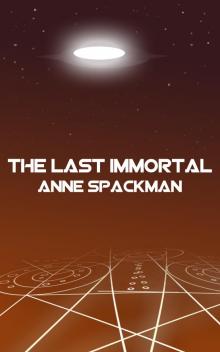 The Last Immortal : Book One of Seeds of a Fallen Empire
The Last Immortal : Book One of Seeds of a Fallen Empire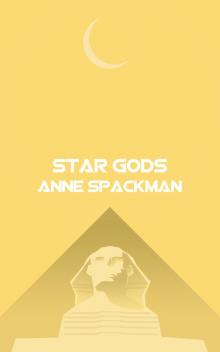 Star Gods: Book Four of Seeds of a Fallen Empire
Star Gods: Book Four of Seeds of a Fallen Empire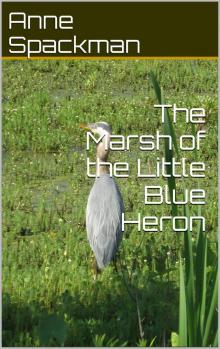 The Marsh of the Little Blue Heron
The Marsh of the Little Blue Heron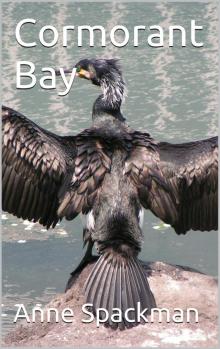 Cormorant Bay
Cormorant Bay Across the Stars: Book Three of Seeds of a Fallen Empire
Across the Stars: Book Three of Seeds of a Fallen Empire Under the Ash Tree
Under the Ash Tree The Swan Gift
The Swan Gift Kestrel's Eye
Kestrel's Eye Caesar and Cleopatra: A Tale of Julius Caesar
Caesar and Cleopatra: A Tale of Julius Caesar The Road to Skye
The Road to Skye Juniper Hill
Juniper Hill The Empire: Book Six of Seeds of a Fallen Empire
The Empire: Book Six of Seeds of a Fallen Empire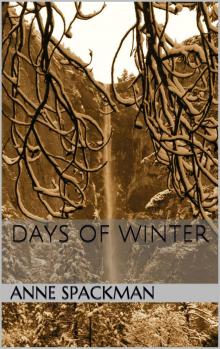 Days of Winter
Days of Winter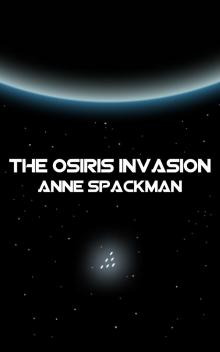 The Osiris Invasion: Book Two of Seeds of a Fallen Empire
The Osiris Invasion: Book Two of Seeds of a Fallen Empire The Comet Riders: Book Five of Seeds of a Fallen Empire
The Comet Riders: Book Five of Seeds of a Fallen Empire Ocean Spirit : The Story of an Undine
Ocean Spirit : The Story of an Undine What Emma Left Behind
What Emma Left Behind The Book of Bird and Fairy Stories
The Book of Bird and Fairy Stories Blackberry Wine
Blackberry Wine Curse of the Dragon Kings
Curse of the Dragon Kings